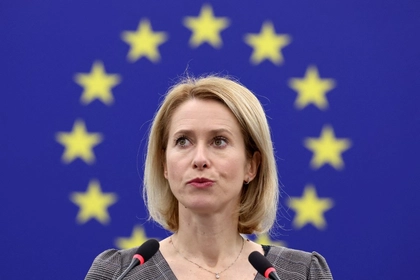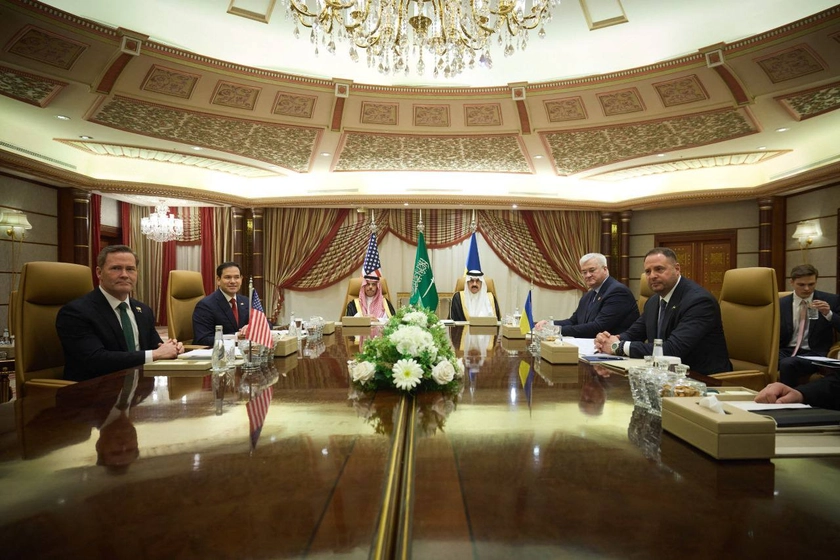The 61st Munich Security Conference, slated to take place between Friday and Sunday this week, will mark the first major security summit in Europe since the re-election of US President Donald Trump, with Ukraine expected to be among the key discussion topics.
Attendees will include senior officials from both sides of the Atlantic, including Ukraine’s President Volodymyr Zelensky, US Secretary of State Marco Rubio, Trump’s Ukraine-Russia Special Envoy Keith Kellogg and Vice President J.D. Vance – to name but a few.
JOIN US ON TELEGRAM
Follow our coverage of the war on the @Kyivpost_official.

The conference will also see the controversial, newly appointed US Director of National Intelligence (DNI) Tulsi Gabbard meeting her European counterparts for the first time.
Following the latest phone call between Trump and Russian leader Vladimir Putin and the rejection of Ukraine’s NATO bid by US Defense Secretary Pete Hegseth during Wednesday’s Ramstein format meeting, all eyes turn to Munich to gauge Europe’s response to the latest developments.

‘A Beacon of Democracy’ – EU Looks to Resume Funding for RFE
Though no major breakthrough on Ukraine is expected, the Munich Security Conference might offer some clarity as to how the largest land war in Europe since WWII, launched by Russia, might unfold in the coming months.
Kellogg - Zelensky meeting
Zelensky is expected to meet Kellogg, Rubio and Vance – the highest-ranking US officials he will meet in person since Trump’s return to office.
Kellogg recently said that Trump’s peace plan will not be unveiled at the conference, but he is expected to meet Zelensky nonetheless. Kellogg, tasked by Trump to end the war that resulted from Russia’s full-scale invasion of Ukraine, was expected to take a key role in the discussions by liaising with European officials.

However, Kellogg was not mentioned when Trump named his team to lead the peace talks after his phone call with Putin. This has prompted speculation that he has fallen out of favor due to what may be a more sympathetic attitude toward Ukraine than those of his colleagues.
Security and foreign policy expert Mark Toth told Polish outlet TVP World that the change might indicate a shift in the peace talk approach, as Trump named Steve Witkoff, his Middle East envoy with an economics background, instead.
What role will Kellogg take moving forward? And what will come of his talks with Zelensky? Those questions wait to be answered.
Vance and Rubio
Zelensky said he would meet both Vance and Rubio in Munich on Friday.
The topics for discussion are unclear, but insider sources told Ukrainian outlet Suspilne that Zelensky received a draft proposal on the rare earth deal that reportedly kicked off on Wednesday in Kyiv which he is set to confer with Vance about on Friday.
Following the latest rejection of Kyiv’s bid for NATO membership by US Defense Secretary Pete Hegseth – a condition that Kyiv had suggested was non-negotiable for future talks – it will be interesting to see how the parties will react to this “impasse” in their meetings.
Both Vance and Rubio have vowed to put an end to Russia’s war in Ukraine, though their attitudes on the subject differ slightly.

Vance said outright that he “[doesn’t] really care what happens to Ukraine one way or another” in 2022, and he has been vocally opposed to continued support for Kyiv. He also refused to call Putin an enemy, only an “adversary” during an interview with NBC News in October 2024.
Meanwhile, Rubio appears to be more hawkish toward Russia by saying he wanted the war in Ukraine to end while acknowledging that Russia was to blame for causing it.
“I think the Ukrainians have been incredibly brave and strong in standing up to Russia. But at the end of the day, what we are funding here is a stalemate war, and it needs to be brought to a conclusion, or that country is going to be set back 100 years,” Rubio said in a televised statement in November 2024.
“I’m not on Russia’s side – but unfortunately, the reality of it is that the way the war in Ukraine is going to end is with a negotiated settlement,” Rubio also told NBC in September.

Tulsi Gabbard
Gabbard is known for parroting Kremlin narratives that counter the US’ and Europe’s longstanding stance on Ukraine and European security, and her upcoming meeting with her European counterparts will be interesting, to say the least.
As the DNI, Gabbard is set to oversee 18 US intelligence agencies, including the CIA and FBI.
Her friendly stance towards traditional US adversaries like Russia has prompted concerns that trans-Atlantic intelligence cooperation could be hindered, with Europe becoming more reluctant to share its intelligence with Washington.

Will that be the case? Or is it just a baseless concern? We will find out soon enough.
Europe’s response
The EU said it would take up the leadership role in support of Ukraine if Washington pulls back its support – maybe now’s the time to see if the Europeans will make good on their words.
Following the developments at the Ramstein format meeting, the foreign ministers of key European nations – including Germany, France, Poland and the UK – issued a statement saying, “Ukraine and Europe must be part of any [peace] negotiations.”

“We are ready to enhance our support for Ukraine. We commit to its independence, sovereignty and territorial integrity in the face of Russia’s war of aggression,” the statement reads.
“We share the goal to keep supporting Ukraine until a just, comprehensive and lasting peace is reached. A peace that guarantees the interest of Ukraine and our own. We are looking forward to discussing the way ahead together with our American allies,” it added.
With the Kremlin suggesting that the Trump - Putin talks were attempting to leave Europe out of the picture, whether Europe will finally strike back with not just words but also actions is a question many expect to be answered in Munich.
You can also highlight the text and press Ctrl + Enter











